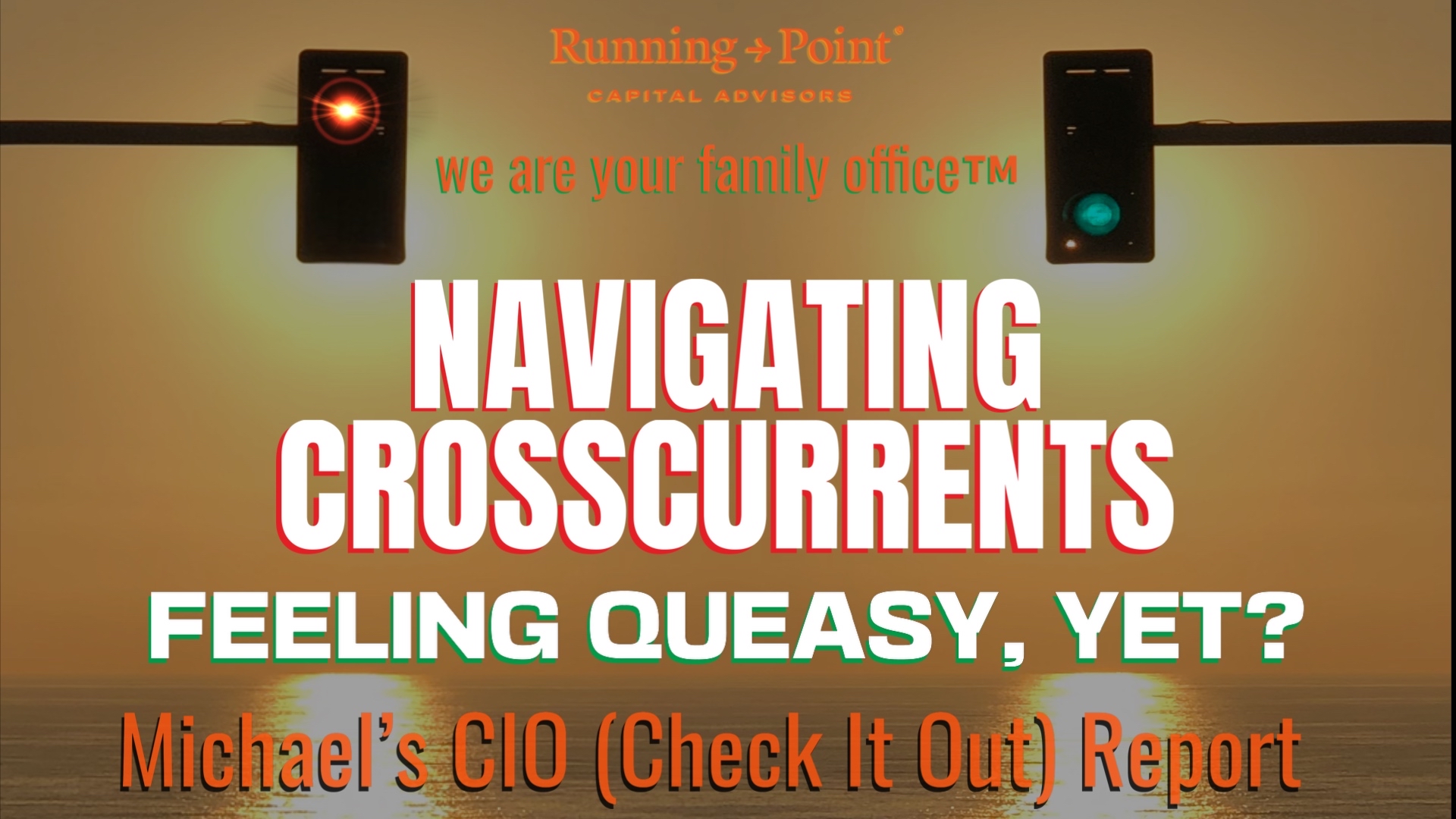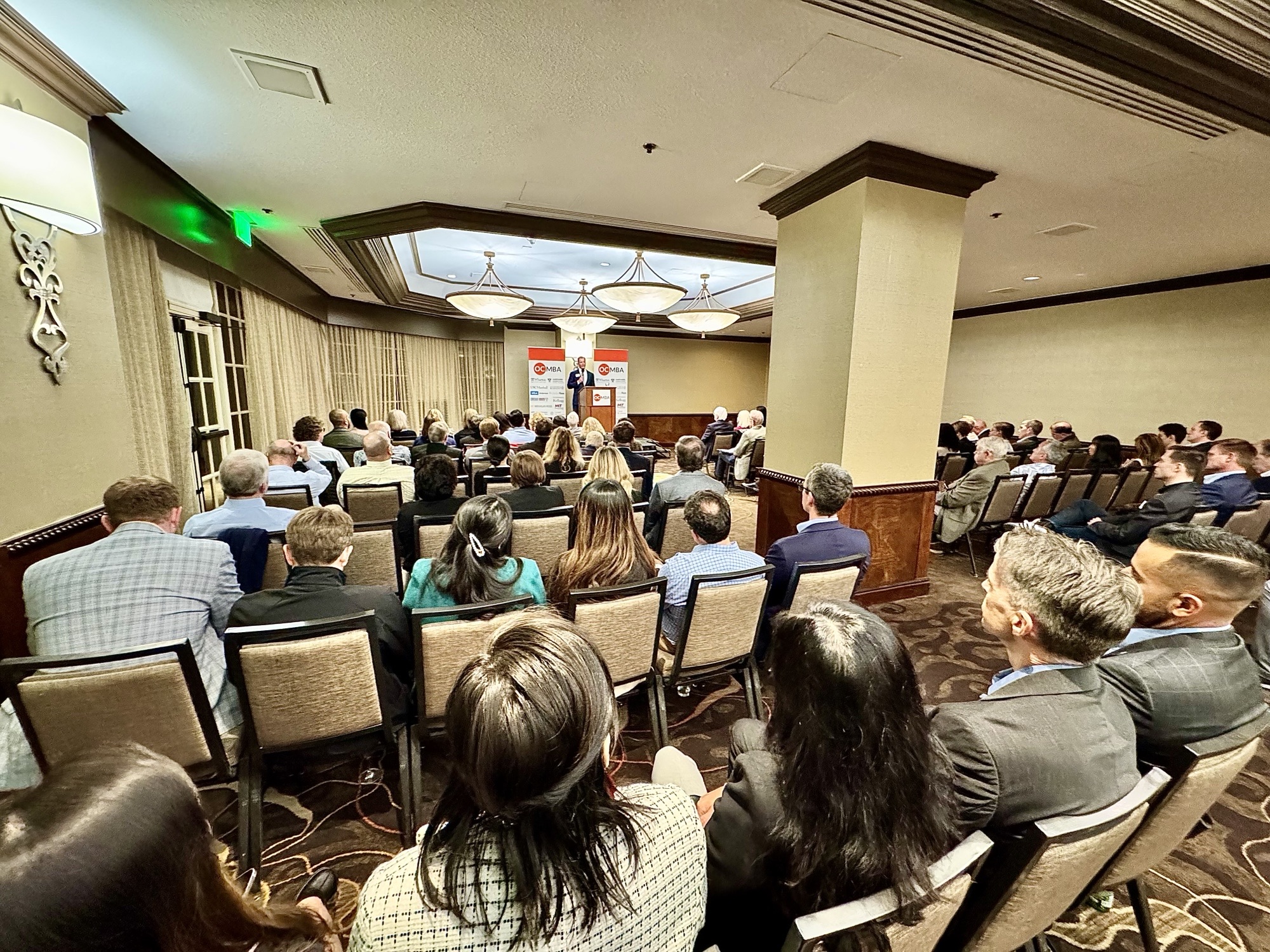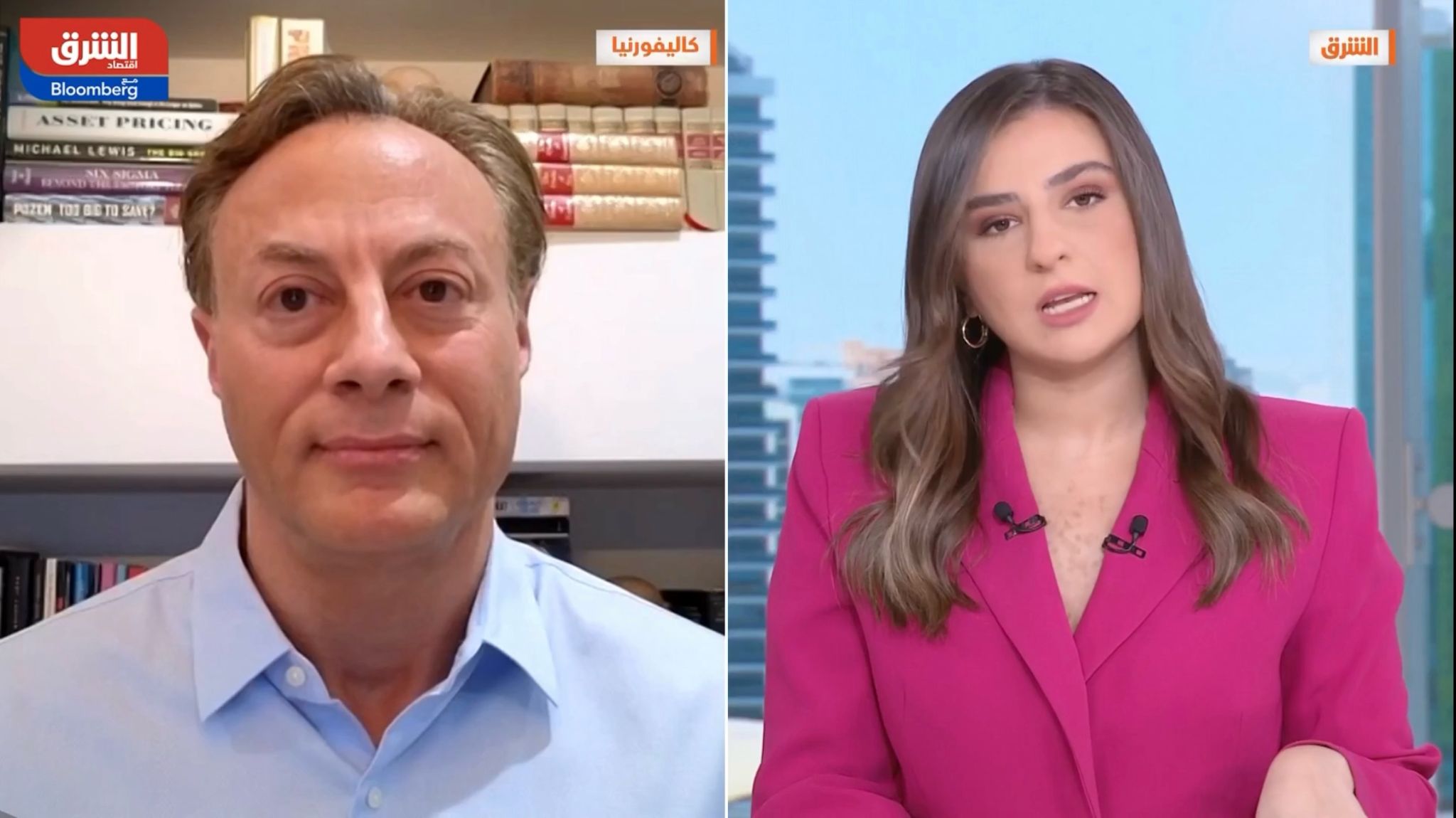We all have Schrödinger’s[1] Virus now. Because we cannot get tested, we can’t know whether we have the virus or not. We have to act as if we have the virus so that we don’t spread it to others. We have to act as if we’ve never had the virus because if we don’t have it, we’re not immune. Therefore, we both have and don’t have the virus. Thus, Schrödinger’s Virus. ~~ source unknown
Today’s perspective covers reality, hope, and volatility during this time of Covid-19. The reality, as exemplified by the quote above, is that, philosophically, all us should act as if we have the virus; the hope is that we know, as Queen Elizabeth II said in a Sunday message that went global, “We will succeed”; and the volatility will stem from the shock to come after this new temporary quiet of shutdown, passes over us like the eye[2] of a storm.
Over the past week, news has been both positive and negative, but ended with several measures of hope. Moody’s investment rating service downgraded the nation of South Africa to junk (this has been a long time coming), Russia (which has the longest border in the world with China) finally shut entry, China added liquidity to its system by lowering short term rates further (from 2.4% to 2.2%) and cutting the bank reserve rate (the cash amount that banks must hold as reserves), President Trump extended the U.S.’s social distancing policy till the end of April, a Russian cargo plane delivered aid to New York city, oil prices rose from $20 to $28 per barrel (still cheap, but a 40% rise nonetheless), the S&P 500 was down only -2% for the week, and Queen Elizabeth II of the United Kingdom televised a short eloquent speech of thanks, hope, and spirit, a message that seemed universal and is excerpted below (the full 4 ½ minute video can be viewed here):
“Together, we are tackling this disease, and…if we remain united and resolute, then we will overcome it.”
“The pride in who we are is not a part of our past, it defines our present and our future.”
“While we have faced challenges before, this one is different. This time we join with all nations across the globe in a common endeavor, using the great advances of science and our instinctive compassion to heal.
“We will succeed, and that success will belong to every one of us.
Towards that success, in some headline hotspots such as Italy, Spain, and New York, the rate of new virus deaths has plateaued, a sign that at least in specific areas, the velocity of infection has levelled off because of social distancing and lots of people individually working together.
Although things are far from calm, they are quiet, and many of us have settled into a new kind of provisional normalcy and acceptance; that coupled with government financial support (including the $2 trillion CARES act and huge monetary stimulus from the Fed), reports of infections and deaths plateauing, and stocks looking less disastrous, has put us proverbially in the eye of the hurricane.
As stated in my March 23 perspective, “Once we see Covid-19 cases plateau, a more confident health care response, and additional targeted monetary and fiscal stimulus, expect buyers to return to take advantage of price dislocations and attractive corporate and municipal yields.”
We may feel like we have weathered a full storm, especially since by now, many of us know someone who has been infected or directly affected. But there is still the other half of the hurricane to pass over us with its resultant flood of additional bankruptcies, store closings, layoffs, furloughs, unemployment, and infections. Many companies are now focused on business continuity, workforce safety, liquidity management, cost and capital expenditure (capex) reductions, going virtual, employment optimization, and supply chain alternatives, most of which will cut into future margins or profits. It will take a while for the U.S. and the rest of the world to achieve the same earnings expectations we had only six months ago.
Although we may have seen the stock market low for this downturn on March 23, it may be tested with another decline from current valuations. The investment markets are going to have to deal with numerous multidirectional tugs as headlines flow during this unprecedented crisis. Philosophically, we may all have the virus, and spiritually, we may all believe we will weather through, but we have merely passed into the eye of the hurricane.
The second half of this Covid-19 storm will be measured by the length of the shutdown which will determine the depth of the economic and social decline investment markets face, as well as the cleanup and recapitalizations that will follow. Slow global growth, weak spending, and supply side disruption will pressure manufacturing and services for a while. Analyst expectations of corporate earnings are still declining for 2020 and 2021 and many companies have stopped providing guidance on earnings because of the hard to forecast business and employment climate here and abroad. It’s not just the U.S. we have to be concerned about, but all of our trading partners and all of their trading partners too; for many top U.S. multinational companies – e.g., Apple, Procter & Gamble, Starbucks, and Pepsi – much of their growth (as well as their supplies) comes from developing markets. Thus it seems worth repeating some points from previous perspectives: A) Governments will do whatever it takes, eventually (i.e., they probably won’t get it right on the first pass), B) Don’t bet against an alignment of the central bank and the government (i.e., if monetary and fiscal policy are backstopping something, it will probably be alright), and C) Once we pass the shutdown stage, government stimulus can turn from defensive to offensive – in order to spark a near-term recovery (with direct government spending and business and consumer incentives). The big question investors are trying to discount or gauge is the timing of the massive storm cleanup; if recovery is sooner, assets are worth more today; if recovery is stretched out, stocks, real estate, and corporate debt have a lower net present value.
Endnotes
[1] Erwin Schrödinger was a Noble Prize-winning physicist popularly known for his Schrödinger’s cat paradox (quantum mechanics thought experiment) that describes something as simultaneously existing and not existing as a result of a random event; a couple videos explaining Schrödinger’s cat can be found at LondonCityGirl and Ted-Ed.
[2] The eye of a storm or hurricane is a moving region of relatively calm weather at the center of a cyclone that is often surrounded by the fiercest part of the tempest.
Michael Ashley Schulman, CFA
Partner, Chief Investment Officer
Disclosure: The opinions expressed herein are those of Running Point Capital Advisors, LLC (“Running Point”) and are subject to change without notice. Running Point reserves the right to modify its current investment strategies and techniques based on changing market dynamics or client needs. This should not be considered investment advice or an offer to sell any product. Running Point is an independent investment adviser registered under the Investment Advisers Act of 1940, as amended. Registration does not imply a certain level of skill or training. More information about Running Point, including our investment strategies, fees and objectives can be found in our ADV Part 2, which is available upon request. RP-20-06


